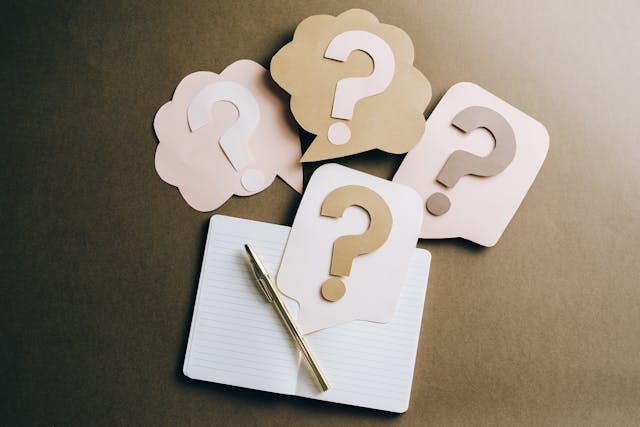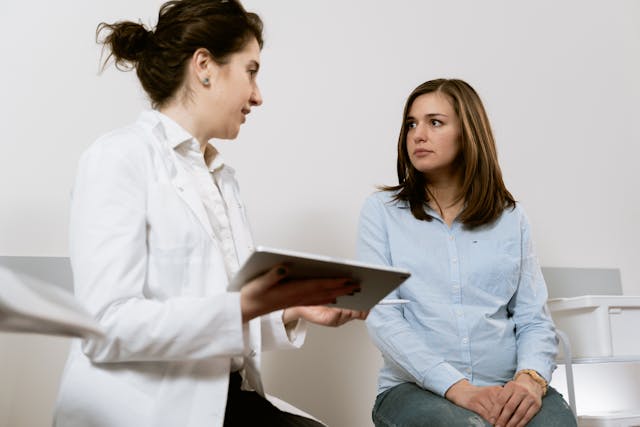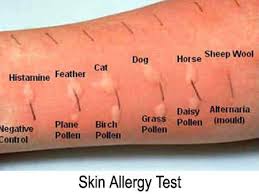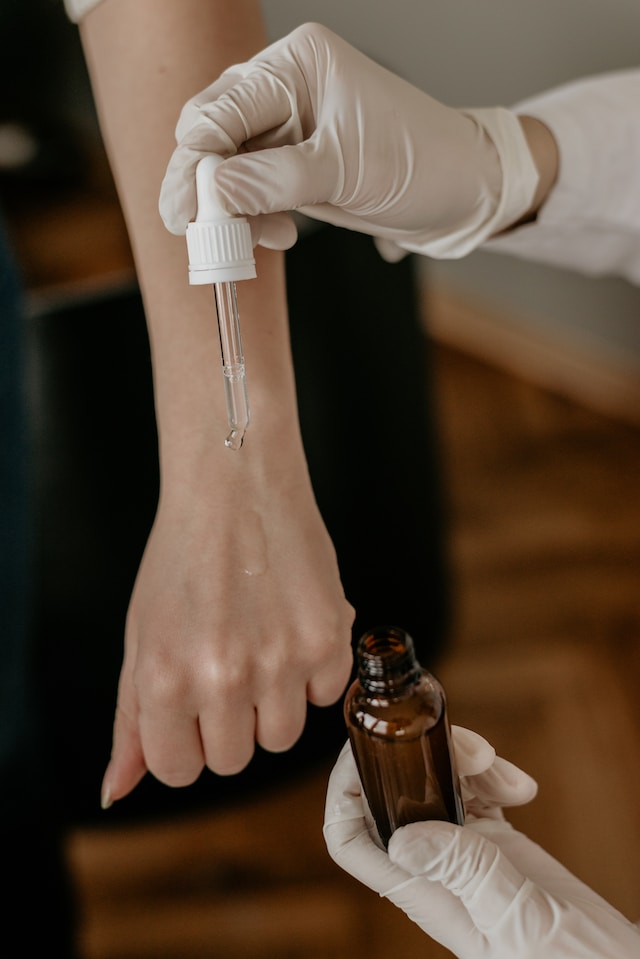Category Archives: allergy testing nyc
Exploring Advanced Allergy Testing Methods
In New York City, where allergen exposure is constant and varied, understanding advanced allergy testing options is key. Allergies can impact every aspect of your life — from what you eat and where you go, to how well you sleep. If you’ve been dealing with persistent symptoms like sneezing, congestion, rashes, or even digestive issues, pinpointing the exact cause is the first step toward effective relief. Fortunately, modern allergy testing methods have come a long way, offering highly accurate insights with less discomfort and faster results. Here’s a comprehensive look at today’s most effective testing techniques and what you can expect during the process.

Why Allergy Testing Is Important
Accurate allergy testing identifies the substances your body is reacting to — whether they’re environmental, food-related, or chemical. Once you know your specific triggers, your allergist can develop a personalized treatment plan, which may include medication, avoidance strategies, or immunotherapy.
Without testing, you’re left guessing — and often living with symptoms longer than necessary.
Advanced Allergy Testing Methods
Today’s allergy tests go far beyond the basics. Here are the most widely used and effective methods now offered in leading clinics:
1. Skin Prick Testing (SPT)
One of the most common and reliable methods for diagnosing allergies, skin prick testing involves placing tiny amounts of allergens just under the skin’s surface.
- What it tests: Common environmental allergens (dust mites, pollen, mold, pet dander) and some food allergens
- How it works: Allergens are applied to the skin with a small lancet. If you’re allergic, a small raised bump or redness will appear.
- Time to results: Within 15–20 minutes
2. Intradermal Testing
This method is more sensitive than the skin prick test and may be used when SPT results are negative but suspicion of an allergy remains high.
- What it tests: Primarily environmental allergens
- How it works: A small amount of allergen is injected just under the skin.
- Time to results: 15–20 minutes
3. Specific IgE Blood Testing
Also known as serum IgE testing, this blood test measures your immune system’s response to individual allergens by detecting allergen-specific antibodies.
- What it tests: Foods, environmental allergens, insect venom, medications
- How it works: A blood sample is taken and sent to a lab for analysis.
- Best for: Patients who cannot stop antihistamines or those with severe skin conditions
- Time to results: A few days to one week
4. Component-Resolved Diagnostics (CRD)
An advanced version of IgE blood testing, CRD analyzes specific proteins within allergens to determine the risk and severity of reactions.
- What it tests: Primarily food and insect venom allergies
- Why it’s advanced: Helps distinguish between a mild sensitivity and a potentially life-threatening reaction
- Best for: Complex food allergies and those considering immunotherapy
5. Patch Testing
This test identifies delayed allergic reactions that affect the skin — typically contact dermatitis.
- What it tests: Metals (like nickel), fragrances, latex, cosmetics, preservatives
- How it works: Allergens are applied to patches, which are worn on the back for 48 hours.
- Best for: Chronic rashes and eczema of unknown cause
Choosing the Right Testing Method
Your allergist will recommend a testing method based on:
- Your symptoms (respiratory, skin, digestive, etc.)
- Suspected triggers (food vs. environmental vs. chemical)
- Your health history, medications, and lifestyle
Sometimes, a combination of tests is needed to arrive at a precise diagnosis.
What to Expect During Testing
Allergy testing is safe, and while some methods cause mild itching or redness, most are well-tolerated. Preparation may include:
- Stopping antihistamines 3–7 days before testing (your provider will advise)
- Bringing a list of symptoms and suspected triggers
- Wearing comfortable clothing if skin testing is planned
When to Seek Advanced Allergy Testing
You should consider advanced allergy testing if you:
- Have persistent symptoms with no clear cause
- Experience frequent sinus infections, eczema, or unexplained asthma
- Suspect food allergies or intolerances
- Have tried over-the-counter medications without relief
Schedule Your Allergy Evaluation in NYC
If you’re struggling with undiagnosed allergy symptoms or want a more accurate diagnosis, advanced testing can help you finally get answers — and the relief you deserve. Schedule your evaluation with Dr. Boyan Hadjiev at:
Allergy, Asthma and Sinusitis P.C
Boyan Hadjiev, MD
30 East 40th Street
Suite 1200
New York, NY 10016
212-319-5282
Modern allergy testing is fast, precise, and a game-changer in helping you breathe, eat, and live more comfortably. Take the first step today.
How to Prepare for an Allergy Test
This blog post will guide you through the necessary steps to get ready for your allergy test, from understanding the different types of tests available to managing your medications and lifestyle. When you suspect you may have allergies, an allergy test can provide valuable insights into the specific allergens that trigger your symptoms. To ensure the accuracy and effectiveness of the test, it’s essential to prepare adequately. By following these guidelines, you can maximize the benefits of the test and take control of your allergies.

How to Prepare for an Allergy Test
1. Stop Certain Medications
Consult your allergist about stopping antihistamines and other medications that can interfere with test results. Typically, you should stop taking antihistamines 7-10 days before the test.
2. Discuss Medical History
Provide your allergist with a detailed medical history, including any symptoms, triggers, and past allergic reactions.
3. Avoid Perfumes and Lotions
On the day of the test, avoid using perfumes, lotions, or other skin products that might affect test results.
4. Wear Comfortable Clothing
Wear loose, comfortable clothing that allows easy access to your arms and back, where skin tests are typically performed.
5. Eat Normally
There is usually no need to fast before an allergy test unless instructed otherwise by your doctor.
Preparing for an Allergy Test: Conclusion
Preparing for an allergy test requires careful consideration of various factors, including medications, medical history, skin products, clothing choices, and specific instructions from your allergist. By following these guidelines, you can significantly improve the accuracy and effectiveness of the test, leading to a more accurate diagnosis and effective treatment plan. Remember to communicate openly with your allergist and ask any questions you may have to ensure a successful allergy testing experience.
Are you struggling with allergies? Let Dr. Boyan Hadjiev at Allergy, Asthma and Sinusitis P.C. help. Schedule your appointment today for expert allergy testing and personalized treatment plans.
Allergy, Asthma and Sinusitis P.C
Boyan Hadjiev, MD
30 East 40th Street
New York, NY
212-319-5282
Allergy Testing 101: What to Expect at NYC’s Premier Allergy Clinic
 Are you experiencing mysterious symptoms that might be related to allergies? Perhaps you’ve been struggling with sneezing, itchy eyes, or unexplained skin rashes. If so, it’s time to consider allergy testing, a critical step toward identifying and managing your allergies. Dr. Boyan Hadjiev, MD, also known as “Dr. Sneeze,” operates NYC’s premier allergy clinic, Allergy, Asthma and Sinusitis P.C. In this blog post, we’ll explore what to expect when you undergo allergy testing at this clinic.
Are you experiencing mysterious symptoms that might be related to allergies? Perhaps you’ve been struggling with sneezing, itchy eyes, or unexplained skin rashes. If so, it’s time to consider allergy testing, a critical step toward identifying and managing your allergies. Dr. Boyan Hadjiev, MD, also known as “Dr. Sneeze,” operates NYC’s premier allergy clinic, Allergy, Asthma and Sinusitis P.C. In this blog post, we’ll explore what to expect when you undergo allergy testing at this clinic.
Allergy Testing 101: Why Allergy Testing?
Allergy testing is a vital diagnostic tool that helps pinpoint the specific allergens triggering your symptoms. Identifying these culprits is the first step toward effective allergy management. Dr. Sneeze and his team utilize cutting-edge allergy testing methods to provide you with accurate results and personalized treatment plans.
Allergy Testing 101: The Allergy Testing Process
1. Consultation and Assessment
Your journey begins with a comprehensive consultation with Dr. Sneeze or one of his skilled healthcare professionals. During this initial assessment, you’ll discuss your medical history, symptoms, and any potential triggers. This information helps guide the testing process and ensures a tailored approach to your care.
2. Skin Prick Testing
Skin prick testing is one of the most common methods used for allergy testing. It involves applying a small amount of allergen extracts to your skin, typically on your forearm or back. These extracts represent common allergens like pollen, dust mites, pet dander, and certain foods. Dr. Sneeze will then use a small, painless needle to prick or scratch the skin’s surface, allowing the allergens to enter.
3. Observation
After the allergens are introduced to your skin, you’ll be closely monitored for any allergic reactions. This typically involves checking for the development of small raised bumps, known as wheals, and assessing their size and severity. The presence and size of these wheals indicate your body’s response to specific allergens.
4. Interpretation and Diagnosis
Dr. Sneeze will carefully interpret the results of your skin prick testing. Positive reactions to specific allergens will help identify the substances to which you are allergic. This information is invaluable for creating a personalized allergy management plan.
What to Expect During Testing
- The entire process is relatively quick and typically takes around 20-30 minutes.
- Skin prick testing is minimally invasive and generally painless.
- You may experience mild itching or redness at the test sites, but these symptoms are temporary and typically subside within a short time.
Preparing for Allergy Testing
Before undergoing allergy testing, there are a few essential steps to follow:
- Inform Dr. Sneeze of any medications you are taking, as some medications may interfere with the results.
- Avoid antihistamines for several days before testing, as they can suppress allergic reactions and affect the accuracy of the results.
Contact NYC’s Premier Allergy Clinic
Are you ready to take control of your allergies and find relief from your symptoms? Contact NYC’s premier allergy clinic, Allergy, Asthma and Sinusitis P.C.
Allergy, Asthma and Sinusitis P.C
Boyan Hadjiev, MD
30 East 40th Street
Suite 1200
New York, NY 10016
212-319-5282
Experience the highest standard of care and expert allergy testing to identify and manage your allergies effectively. Dr. Sneeze and his dedicated team are committed to helping you lead a healthier, symptom-free life. Contact them today and take the first step toward allergy relief.
Best Allergy Testing: What to Expect and How it Can Help
How do you get the best allergy testing? Allergies can be a frustrating and sometimes even life-threatening condition for many people. The good news is that with proper diagnosis and treatment, it is possible to manage and reduce symptoms. Allergy testing is a crucial part of this process, as it helps to identify specific allergens that may be causing an individual’s allergic reactions. In this blog post, we will explore the importance of this type of testing and what patients can expect during the process.

What is Allergy Testing?
Testing for allergies is a medical procedure that helps to identify the specific allergens that trigger an individual’s allergic reactions. There are several different types of tests, including skin tests, blood tests, and patch tests. Testing for allergies can be performed for a wide range of allergens, including pollen, dust mites, pet dander, and certain foods.
Why is Allergy Testing Important?
Allergy testing is important because it helps to identify the specific allergens that are causing an individual’s allergic reactions. Once these allergens are identified, patients can take steps to avoid exposure to them and reduce their risk of allergic reactions. This type of testing can also help to inform treatment plans, including the use of medications and immunotherapy.
What to Expect During Allergy Testing
The specific procedure for allergy testing may vary depending on the type of test being performed. However, there are some general things that patients can expect during the process.
Types of Allergy Tests
 Skin tests
Skin tests
Skin tests are one of the most common types of allergy testing. During a skin test, a small amount of an allergen is applied to the skin, usually on the back or forearm. The skin is then pricked or scratched to allow the allergen to enter the skin. If the patient is allergic to the specific allergen, they will develop a raised bump or redness at the site of the test.
Blood tests
Blood tests are another common type of allergy testing. During a blood test, a small sample of blood is drawn and sent to a laboratory for analysis. The laboratory will test the blood for specific antibodies that are associated with allergic reactions.
Patch tests
Patch tests are typically used to identify allergies to substances that come into contact with the skin, such as certain metals, fragrances, and preservatives. During a patch test, small patches containing potential allergens are applied to the skin, usually on the back. The patches are left in place for 48 hours before being removed. If the patient is allergic to one of the substances, they will develop a reaction at the site of the patch.
Preparing for the test
Patients may need to stop taking certain medications, such as antihistamines, in the days leading up to allergy testing. This is because these medications can interfere with the results of the tests. Patients should also avoid wearing tight clothing or jewelry that may irritate the skin on the day of the test.
Allergy Testing: Conclusion
In conclusion, allergy testing is an important part of managing and treating allergies. By identifying specific allergens, patients can take steps to avoid exposure and reduce their risk of allergic reactions. If you are experiencing symptoms of allergies, it is important to speak with an allergist and consider undergoing testing.
If you are in the New York City area and looking for a qualified allergist, Boyan Hadjiev MD, also known as “Dr. Sneeze,” can help. Dr. Hadjiev offers a range of allergy testing and treatment options.
Allergy, Asthma and Sinusitis P.C
30 East 40th Street (Btwn Madison and Park)
Suite 1200
New York, NY 10016
212-319-5282
How to Select the Right Allergist
 An allergist is a professional trained to identify the source of your allergy’s symptoms, treat it and help you feel better again. If you need to see an allergist, you possibly have already seen your primary healthcare doctor and may have already undergone some kind of medical testing. However, finding the right allergist can seem daunting at first, but your health and quality of life depend on it. So how do you find the best allergist who is right for you? Here are some important factors to look out for.
An allergist is a professional trained to identify the source of your allergy’s symptoms, treat it and help you feel better again. If you need to see an allergist, you possibly have already seen your primary healthcare doctor and may have already undergone some kind of medical testing. However, finding the right allergist can seem daunting at first, but your health and quality of life depend on it. So how do you find the best allergist who is right for you? Here are some important factors to look out for.
1. Board Certification
First, the allergist of your choice should be someone who has a board certificate. This can be complicated since anyone can claim to be a “board certified allergist”. For example, someone who is actually board-certified in the field of internal medicine can present himself as an “allergist” even in absence of the certification provided by the American Board of Allergy and Immunology (ABAI). Another example is of otolaryngologists, who also call themselves “board-certified allergists”, however, they are not ABAI certified. It is therefore important that you specifically inquire about ABAI certification, or check it for yourself at www.certificationmatters.org.
2. Referrals
Begin your search for the right allergist with the list of referrals from your specialist or primary care doctor. Friends, family, and other healthcare experts are also reliable sources for recommendations. Remember to not rush things and instead take it slow; do your research and thoroughly go through the doctor’s experience and credentials.
3. Experience
When you are faced with an allergy or immune system disorder, experience highly matters. The more experienced an allergist is in dealing with a specific procedure or condition, the better results you are likely to get. Inquire about the number of patients who have the same condition as yours, ask the number of procedures the doctor has carried out and see if there are any complication rates present – problems both encountered by the doctor as well as your risk of complications.
4. Gender
If you are to receive the best treatment, it is extremely important for you to be comfortable with your allergist’s gender since you will explicitly need to discuss personal information. Make sure to inquire the allergist about his/her recent experience and training particularly related to your symptoms and gender. Since gender matters a lot in some kinds of care, allergists are specializing more and more in caring for men and women differently.
5. Your Insurance Plan
Your insurance coverage is a serious matter. For you to receive the most insurance advantages and pay the least out-of-pocket expense for your treatment, you might need to go to an allergist who participates in your plan.
If you are experiencing severe allergies and need to see a doctor real quick, make sure to contact us today for we will help you schedule an appointment with the best allergist in New York!
Call our offices at 212-319-5282 to schedule an appointment with the best allergist in New York City.
Hidden Allergens around the House
Ever wonder why you suddenly got that rash upon waking up in the morning? Or why was it that you were coughing so much the night before? Do you often have swollen cheeks? Each individual has a unique medical situation handed to them when they come into contact with certain substances. These substances cause their body to stimulate a reaction that is painful in severe cases and mildly discomforting in other cases. Whether it is your skin turning red or you getting the pink eye, you can be sure that it is due to an allergen.
What are Allergens?
An allergen is a substance that causes the body to adversely react to it. People have different allergic reactions to the same allergen, which could be due to several medical reasons. They can be found anywhere, from pollen to the food that you eat, to animals and even dust. Most of the allergens travel through the air and can cause congestion and breathing problems once inhaled. They can also get into your eyes and on your skin, cause uncomfortable irritations.
There are a lot of allergens present at our homes that we don’t know about. You will only be able to take the necessary precautions proper once you identity the allergen. Here are some hidden household allergens:
Dust:
Let’s face it, no matter how much you keep your house clean, dust will always find a way to get in. House dust is a combination of many allergens such as food particles, bacteria, viruses and pollen. But the most lethal dust particle is the waste product of the dust mite. This small organism thrives in humid conditions. Did you know that there are millions microscopic organisms living on your bed? It is scary, but true. All you can do is wash your bed once or twice a year and use fresh beddings twice every week.
Perfume:
This is one of the most common allergens in household products. It can contain a variety of fragrances, both natural and synthetically made. Nowadays, most of soaps, shower gels and even shoe polishes we use contain perfume, which can be harmful for a lot of people. It is important to talk to a reputable dermatologist to help determine whether or not you have perfume allergy.
Pets:
One out of every three households in the US has pets. Both dogs and cats are preferred in majority and that speaks volumes on how some people get allergies early in life. Because pets shed their fur, they can carry bacteria and other allergens, ticks and whatnot. A lot of people cannot even stand next to pets without sneezing or coughing.
Bottom Line:
With allergens everywhere, one has to take necessary precautions and use anti allergic medication. Spring is known to be the worst for people with allergies as pollen travels everywhere through the air. Keep a respirator or a mask to steer clear of allergic reactions and similar medical complications
Call our offices at 212-319-5282 to schedule an appointment with the best allergist in New York City.
Types of Food Allergies
Food Allergies
Allergies are caused by a reaction in the immune system to a foreign substance, and allergies can result in a variety of effects that range from mild to severe. Most allergies cause minor reactions from the release of chemicals like histamines, but some allergic reactions can be life-threatening. Whether you suspect you have a mild food allergy or a severe reaction known as anaphylaxis, you should take your concerns to an experienced allergist, so that you can better manage your allergic disorder. Dr. Hadjiev is one of New York City’s top allergists, and can help you with diagnosis and treatment of all allergies, including food allergies.
Food allergies are diagnosed by eliminating certain foods from your diet, and keeping a record of your symptoms. As you slowly add foods back into your diet, any symptoms are recorded. You may also undergo skin testing, which is performed by an allergist who will inject a potentially allergenic substance under your skin. If the skin becomes red or inflamed, you may be allergic to that substance. Finally, an allergist can determine the presence of antibodies to allergic substances in your blood. Antibodies cause allergic reactions.
Allergies are easily treated in many cases by avoiding the food that causes an allergic reaction. In fact, in some cases, this is mandatory, particularly in cases where a particular food causes a life-threatening reaction. Medications are available to prevent allergic reactions, and, for people who may have a life-threatening response to certain foods.
Common Food Allergies
Some common food allergies include peanuts, wheat, shellfish, tree nuts, soy, and eggs. Whatever your food allergy, treatment is available at Hadjiev, NYC’s leading allergist. Food allergies may affect 4% of adults in America, and 4% to 6% of children, according to studies by the Centers for Disease Control and Prevention. Ninety percent of all allergic reactions to food occur as a result of exposure to one of the following eight types of food:
- Eggs
- Milk
- Tree nuts
- Peanuts
- Shellfish
- Fish
- Soy
- Wheat
Symptoms of a food allergy may include vomiting or cramps, shortness of breath or wheezing, a cough, difficulty swallowing, a tight throat or hoarseness, swelling of the tongue, shock or circulatory collapse, a weak pulse, low blood pressure, dizziness and hives. If you have a food allergy, your symptoms will usually occur within a couple of hours after eating, but in severe cases, symptoms may begin moments after exposure.
Food allergies can affect your quality of life, and severe food allergies can result in death. If you have suspicions that you suffer from a food allergy, you should call us today at 212-319-5282 to arrange a consultation with Dr. Hadjiev, one of New York City’s leading allergists.
Allergy Testing
If you have symptoms of an allergic reaction, such as itchy eyes, sneezing, wheezing or hives, your doctor may recommend you undergo allergy testing. Different, substances known as allergens, may trigger an allergic reaction, which can lead to a variety of symptoms. Although some people may suspect they have allergies or guess what they are allergic to, allergy testing is the best way to determine the culprit.
What is Involved in Allergy Testing?
Once you see an allergist and have your allergies properly diagnosed, you can be treated more effectively and have symptoms controlled. On your first appointment with an allergy doctor, a physical exam will be performed, and a medical history taken. The allergist may then suggest certain types of allergy tests in order to confirm the diagnosis. Allergy tests are considered safe for people of all ages including young children.
Types of Allergy Tests
An allergist may recommend a few different types of allergy tests depending on a person’s symptoms. IgE skin tests are one of the most common types of allergy tests performed. An IgE skin test involves introducing a very small amount of a suspected allergen into the skin through a needle. If a person is allergic to the substance injected, slight swelling, itching or a hive at the site of the skin prick will develop. The allergic reaction is usually localized and confined to the spot of the skin prick and resolves in less than an hour. In many instances, IgE skin tests can be performed in the allergist’s office.
In addition to the skin test, challenge tests may also be recommended. Challenge tests involved ingesting or inhaling a small amount of a suspected allergen. This type of allergy testing is usually done when a medication or food allergy is suspected. Challenge testing should always be carefully supervised by an allergist to monitor the patient for a severe allergic reaction.
Blood tests may also be done to help confirm a diagnosis. Blood tests may especially be helpful if other types of allergy tests are unable to be performed or are considered unsafe.
Allergy tests are generally painless, and results are often quick. Determining what you are allergic to can start you on the road to getting the right treatment and feeling better. Call 212- 679-1200 today in order to schedule an appointment with the best allergy doctor in New York City.
Serving all of New York City and the Tri State Area including Zip Codes: Top Allergist NYC Midtown, Chelsea and Clinton: 10001, 10011, 10018, 10019, 10020, 10036 | Gramercy Park and Murray Hill: 10010, 10016, 10017, 10022 | Greenwich Village and Soho: 10012, 10013, 10014 | Lower Manhattan: 10004, 10005, 10006, 10007, 10038, 10280 | Lower East Side: 10002, 10003, 10009 | Upper East Side: 10021, 10028, 10044, 10128 | Upper West Side: 10023, 10024, 10025
